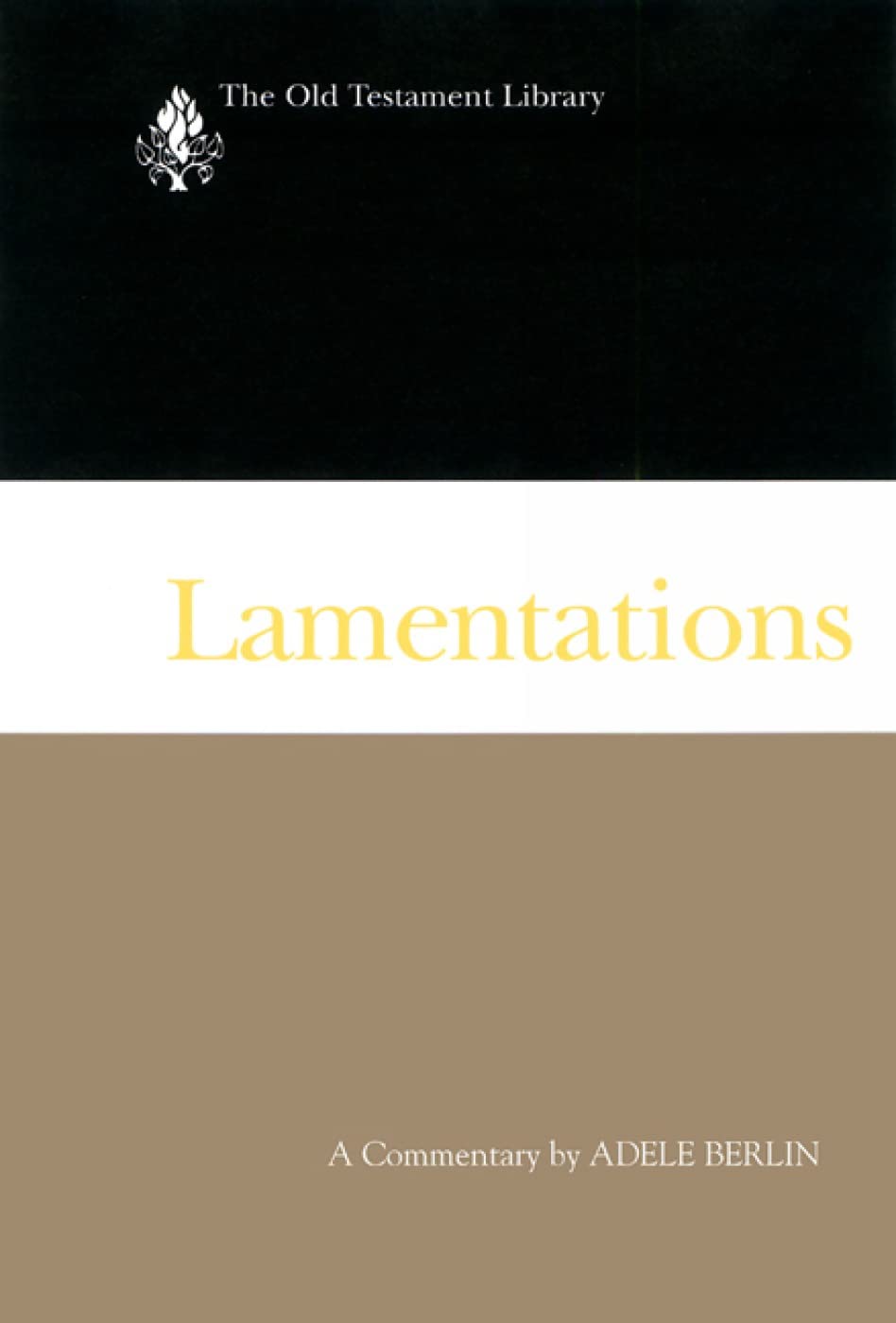A Book Review from Books At a Glance
by G. T. Tran
Summary of Content
In her commentary on Lamentations, Adele Berlin follows a literary approach which pays careful attention to “the poetic discourse, vocabulary, and imagery of the Masoretic Text” while considering relevant ANE parallels (ix). Among recent treatments on Lamentations, Berlin contends that “none privileges literary interpretation to the degree that the present commentary does” (x). Her work falls into two parts:
- Introduction (pp. 1-37)
- Translation and Commentary (pp. 39-126)
The first part covers common issues, such as authorship, date, and theology. Berlin deems it impossible to identify the author of Lamentations (31-32). She dates the book mainly on linguistic grounds and assigns it a sixth-century BC date (34-35). Berlin sees each chapter in Lamentations to offer a unique perspective on the destruction of Jerusalem (7). As for its theology, Berlin argues, “The book is not an explanation of suffering but a re-creation of it and a commemoration of it…. Lamentations contains the seeds of comfort and religious rebuilding that the exilic prophets (especially Second Isaiah) developed more fully in the aftermath of the destruction” (18-19).
In the second part, each of the poems features Berlin’s translation, a section on textual notes, an overview of the poem, and her exposition. Not every verse receives a separate treatment. As she clarifies, “A commentary need not be encyclopedic. I have not attempted to represent every interpretation put forth or every issue debated in the scholarly literature. Indeed, a commentary gets its character from what is selected for comment, both from the text and from the secondary literature” (ix). Berlin titles the five poems as follows:
- Mourning and Shame (Lam 1)
- Anger (Lam 2)
- Exile (Lam 3)
- Degradation (Lam 4)
- Prayer (Lam 5)
Evaluation of Content
The strength of Berlin’s commentary lies in the fact that her exegesis is based on solid literary context. As a result, when it comes to difficult texts, her default is not textual emendation but a careful consideration of the literary context. For example, Lam 5:5 (ESV) has a strange phrase: “Our pursuers are at our necks.” While some interpreters emend “at [‘al] our neck” to “with a yoke [‘ōl] on our necks” (NRSV), Berlin contends that the context favors the first reading. As she explains, “The context of this verse is not one of submission to the enemy or of forced labor, but of the conditions of occupation. The people feel pursued and exhausted because they must expend so much effort merely to stay alive” (119). Another example is Lam 5:9 (ESV) which reads, “We get our bread at the peril of our lives, because of the sword in the wilderness.” The phrase “sword [ḥereb] in the wilderness” is difficult and many interpreters resolve to emend the phrase to read “heat [ḥōreb] of the wilderness.” Berlin, however, sees that emendation as unnecessary since the use of ḥereb in Deut 28:22 and the context of Lam 5:9-10 favor the difficult reading. In fact, “starvation and dehydration are the sword that kills” (121).
Meanwhile, I do not share Berlin’s conclusion regarding the purpose of Lamentations. She states, “The last chapter, and with it the book as a whole, fail to provide the comfort that has been sought throughout it. The book thereby remains a perpetual lament commemorating unconsolable mourning” (125). However, this reading downplays the role of Lam 3, and even Berlin concedes that in Lam 3:22-39, “knowledge of the true nature of God will bring comfort and hope to the sufferer” (92, emphasis added). Further, Berlin thinks that the end of Lam 4 (the prayer for the enemies’ judgment) is the most hopeful place in the entire book (114), but I am not persuaded because such expressions also occur elsewhere, especially at the end of Lam 3 (see 1:21-22; 3:64-66).
Overall, Berlin promises to give us a literary analysis of Lamentations and she indeed delivers. Her commentary is a valuable resource for any serious studies on Lamentations, and for that reason, I recommend it.
G. T. Tran
